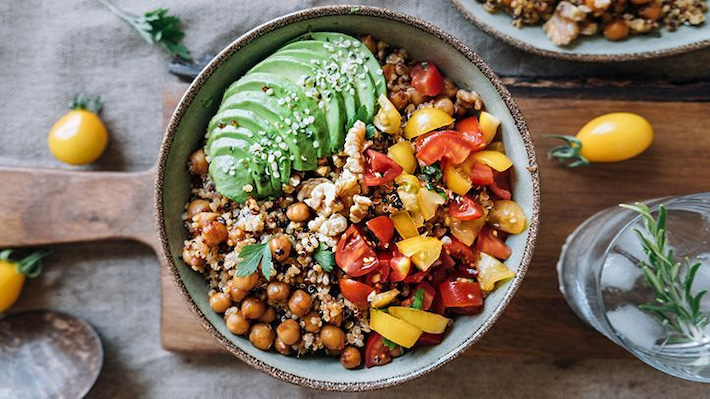Who says that building muscles has to compromise your lifestyle choices or values? Whether you’re an athlete committed to a veggie-fulled diet or someone looking for plant-based protein powders because whey options just don’t agree with your stomach, there are plenty of options to help you power through your workouts and achieve your goals without compromises.
A well-rounded diet supported with plant-based protein powders make it possible to achieve your fitness goals while staying loyal to your lifestyle. Although a veggie-fueled diet comes with many challenges, especially for athletes with higher protein needs, you can overcome these challenges and effectively build muscle with careful planning, supplementing, and resting.
Getting Enough Protein
Every athlete knows that protein is the king of macronutrients. From improving muscle recovery to boosting strength, the importance of protein can’t be overstated, making it a staple in every athlete’s diet. Where diet alone falls short in meeting your nutritional needs, plant-based protein powders come to the rescue.
Although plant-based proteins may not always offer a complete amino acid profile as animal-based proteins, when combined strategically, they can provide all the essential nutrients your body needs for optimal performance and muscle recovery in the gym and beyond.
Many plant-based protein powders for sale are blends of multiple sources, such as pea, rice, and hemp. These mixtures mimic the complete profile of animal proteins and provide a more complete and balanced amino acid profile than using a single source. When looking for the perfect option to meet your nutritional needs always choose natural, whole-food ingredients. Avoid added sugars, artificial sweeteners, and unnatural flavourings that are often added to plant-protein powders to make them less “earthy” and more appealing.
Besides this, plant-based protein supplements are gut-friendly and easily digested. Plant proteins are more easily broken down by the body and absorbed without causing discomfort.
Additionally, plant-based protein mixes can be ideal for athletes with food allergies, intolerances or sensitive stomachs. For instance, protein powders made from dehulled and defatted soybeans or yellow peas are a fantastic alternative for lactose-intolerant athletes who want the same benefits as regular versions without the associated digestive issues. These blends reduce the risk of bloating, gas, and discomfort related to dairy-based products.
Protein Isn’t Everything

Bulking up isn’t all about protein. A wide range of nutrients is needed to support muscle development, recovery and strength. Vegan protein powders can help you feel nutritional gaps, but that’s not the whole story, healthy fats and carbohydrates are also important.
Carbs are the body’s primary energy source. They provide energy for exercise and help replace muscle glucose stores, known as glycogen. When you exercise, your muscles burn glycogen for fuel, so consuming carbs ensures you have enough energy to optimise your performance.
Before a workout, try a small serving of carbs. The type of carbs you include in your diet is also important. Complex carbs, such as wholegrain bread, oats and rice, as well as fruits and vegetables are nutrient-dense and fibre-rich.
Moreover, when there are enough carbs in the diet, your body doesn’t break down muscle protein for energy. This allows protein to be used more efficiently for muscle repair and growth.
In addition to this, fats provide a concentrated source of energy and support hormone production, including testosterone, which is vital for muscle growth and repair. While carbs provide immediate energy, fats are the slowest source of energy. They serve as a long-term energy source for your body. When glycogen stores are depleted, your body turns to fat for fuel, allowing you to sustain longer, intense training sessions. Including high-fat foods in your diet like avocados, nuts, seeds, and olive oil can enhance overall health and recovery.
Hydrate Properly
In addition to consuming all macronutrients, drinking enough water throughout the day also helps maintain muscle mass. Hydration supports the process of protein synthesis, which is vital for muscle repair and growth. It also helps keep your joints lubricated, reducing friction during training and muscle cramps.
Rest
Training and lifting weights help build muscle but so does resting. Training, like most things in life, is all about finding the right balance. Rest days allow your muscles to repair and grow back stronger. They stop you from burning out and ensure you’re ready and able to bring your A-game to the gym.
The number of rest days you need in a week depends on the intensity of your training, sport type, and fitness level. In general, you need to take 2-3 rest days per week to allow for proper recovery or more if you are new to exercise.
To Sum Up
Carbs, proteins, and fats are the foundation of a healthy, balanced diet. With the right diet, a consistent fitness routine, and plenty of rest and hydration, you’ll be well on your way to achieving your fitness goals.



